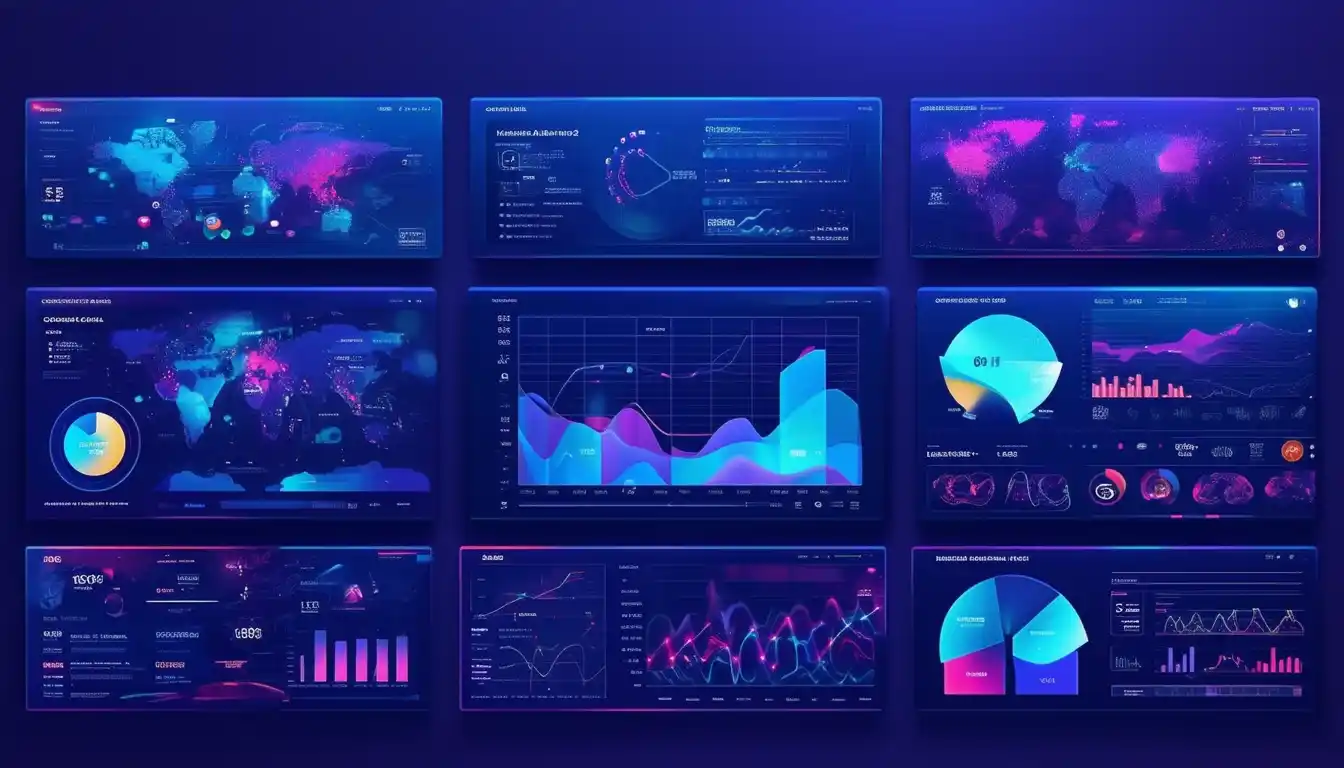
The Evolution of AI in E-Commerce
The evolution of AI in e-commerce has been a remarkable journey, with significant advancements in recent years. From basic chatbots to sophisticated language generation models, AI has transformed the way businesses interact with their customers. One of the key areas where AI has made a substantial impact is in product descriptions, enabling companies to create engaging and personalized content that resonates with their target audience. As AI technology continues to advance, we can expect to see even more innovative applications in the e-commerce industry, further revolutionizing the way businesses communicate with their customers.
The use of AI in product descriptions has numerous benefits, including enhanced customer experience, increased sales, and improved brand loyalty. By leveraging AI-powered tools, companies can analyze customer data and preferences, creating personalized product descriptions that cater to individual needs. This not only helps to build trust and credibility with customers but also drives sales and revenue growth. Moreover, AI-generated product descriptions can be easily translated into multiple languages, enabling businesses to expand their reach and tap into new markets.
As AI continues to evolve, we can expect to see even more exciting developments in the field of product descriptions. For instance, AI-powered tools can now generate high-quality product descriptions in a matter of seconds, saving businesses time and resources. Additionally, AI can analyze customer feedback and reviews, providing valuable insights that can be used to improve product descriptions and enhance the overall customer experience. With the rapid advancements in AI technology, it's essential for businesses to stay ahead of the curve and leverage these innovations to stay competitive in the ever-changing e-commerce landscape.
The future of AI in product descriptions holds immense promise, with potential applications in areas such as voice commerce, augmented reality, and virtual reality. As voice assistants become increasingly popular, AI-powered product descriptions can be optimized for voice search, enabling customers to easily find and purchase products using voice commands. Similarly, AI can be used to generate immersive product descriptions for augmented and virtual reality experiences, further blurring the lines between online and offline shopping. By embracing these innovations, businesses can stay ahead of the competition and provide their customers with a seamless and engaging shopping experience.
Enhancing Customer Experience with AI Product Descriptions
Enhancing Customer Experience with AI Product Descriptions is crucial for businesses to stay competitive in the e-commerce landscape. AI product description tools leverage machine learning algorithms to analyze customer data and create customized product descriptions. By understanding customer preferences and behavior, businesses can tailor their product descriptions to meet the specific needs of each individual. This level of personalization not only improves the overall shopping experience but also increases conversion rates and customer satisfaction. One of the key benefits of AI-powered product descriptions is their ability to adapt to different customer segments. For instance, a business can use AI to create product descriptions that cater to customers with specific interests or preferences. This can be particularly useful for businesses that offer a wide range of products, as it allows them to target specific customer groups with tailored messaging.
Additionally, AI-powered product descriptions can be easily translated into multiple languages, making it easier for businesses to expand their reach into new markets and cater to a diverse customer base. The use of AI in product descriptions also enables businesses to optimize their content for search engines. By analyzing customer search data and trends, AI-powered tools can identify the most relevant keywords and phrases to include in product descriptions. This can help businesses improve their search engine rankings and increase the visibility of their products online. Furthermore, AI-powered product descriptions can be continuously updated and refined based on customer feedback and behavior, ensuring that businesses are always presenting their products in the most effective and engaging way possible.
As the use of AI in product descriptions continues to evolve, we can expect to see even more innovative applications of this technology. For example, some businesses are already using AI to create interactive product descriptions that allow customers to explore products in 3D or virtually try on clothing and accessories. This level of interactivity can help to create a more immersive shopping experience and increase customer engagement with products. By embracing AI-powered product descriptions, businesses can stay ahead of the curve and provide their customers with a more personalized, engaging, and satisfying shopping experience.
The Role of AI in Personalizing Product Recommendations
Innovations in AI have enabled businesses to provide personalized product recommendations based on individual customer preferences. By analyzing customer data and browsing history, AI algorithms can suggest relevant products that align with the customer's interests and preferences. This level of personalization not only increases sales but also fosters long-term customer loyalty and engagement. The integration of AI in product recommendations has also led to the development of more sophisticated customer profiling. By leveraging machine learning capabilities, businesses can create detailed customer profiles that capture their preferences, behaviors, and purchase history.
These profiles enable companies to tailor their marketing efforts and product offerings to specific customer segments, resulting in more effective targeting and increased conversion rates. Furthermore, AI-powered customer profiling allows businesses to identify emerging trends and patterns in customer behavior, enabling them to stay ahead of the competition and adapt to changing market conditions. One of the key benefits of AI-driven personalization in product recommendations is its ability to enhance the overall customer experience. By providing customers with relevant and timely product suggestions, businesses can create a more engaging and interactive shopping experience. This, in turn, can lead to increased customer satisfaction, reduced cart abandonment rates, and improved brand loyalty.
Additionally, AI-powered product recommendations can help businesses to upsell and cross-sell relevant products, increasing average order value and driving revenue growth. As the use of AI in product descriptions continues to evolve, we can expect to see even more innovative applications of personalization in the e-commerce landscape. The future of AI in product recommendations holds much promise, with ongoing advancements in natural language processing, computer vision, and machine learning.
As these technologies continue to mature, we can expect to see even more sophisticated and personalized product recommendations that are tailored to individual customer needs and preferences. For instance, AI-powered chatbots and virtual assistants may become increasingly prevalent, providing customers with real-time product recommendations and support. Moreover, the integration of AI with emerging technologies such as augmented reality and the Internet of Things may enable businesses to create even more immersive and interactive shopping experiences, further blurring the lines between online and offline commerce.
The Impact of AI on SEO and Search Rankings
The impact of AI on SEO and search rankings is a multifaceted one, with AI-powered product descriptions serving as a key driver of improved online visibility. By analyzing customer search patterns and incorporating relevant keywords, businesses can create product descriptions that are optimized for search engines, thereby increasing their chances of appearing at the top of search engine results pages (SERPs). This, in turn, can lead to a significant increase in organic traffic, as customers are more likely to click on search results that appear at the top of the page. Furthermore, AI-powered product descriptions can be tailored to specific customer segments, allowing businesses to target their marketing efforts more effectively and improve their overall ROI.
Another significant benefit of AI-powered product descriptions is their ability to adapt to changing search engine algorithms. Search engines such as Google are constantly updating their algorithms to provide users with more accurate and relevant search results, and AI-powered product descriptions can help businesses stay ahead of the curve. By incorporating machine learning algorithms and natural language processing (NLP) techniques, AI-powered product descriptions can be optimized for search engines in real-time, ensuring that businesses remain visible and competitive in the ever-changing e-commerce landscape. This can be particularly beneficial for small and medium-sized businesses, which may not have the resources to dedicate to ongoing SEO efforts.
In addition to improving search engine rankings, AI-powered product descriptions can also provide businesses with valuable insights into customer behavior and preferences. By analyzing customer interactions with product descriptions, businesses can gain a deeper understanding of what drives customer engagement and conversion. This information can be used to inform product development, marketing strategies, and customer service initiatives, allowing businesses to create a more seamless and personalized customer experience. Moreover, AI-powered product descriptions can be integrated with other AI-powered tools, such as chatbots and virtual assistants, to create a cohesive and omnichannel customer experience that drives loyalty and retention. By leveraging the power of AI in product descriptions, businesses can stay ahead of the competition and thrive in the rapidly evolving e-commerce landscape.
The Future of AI-Powered Product Descriptions
As AI technology continues to evolve, the future of product descriptions in e-commerce looks promising. With advancements in natural language processing and machine learning, businesses can expect even more personalized and engaging product descriptions that resonate with their target audience. AI-powered tools will play a key role in shaping the future of online shopping, driving innovation and transforming the way businesses communicate with their customers. One of the most significant advantages of AI-powered product descriptions is their ability to adapt to individual customer preferences. By analyzing customer data and behavior, AI algorithms can generate product descriptions that cater to specific needs and interests, increasing the likelihood of conversion and customer satisfaction.
Moreover, AI-powered tools can also help businesses to optimize their product descriptions for search engines, improving visibility and driving more organic traffic to their websites. As a result, businesses can expect to see a significant improvement in their online sales and revenue. The integration of AI in product descriptions will also enable businesses to scale their content creation efforts more efficiently. With the help of AI-powered tools, businesses can generate high-quality product descriptions at a faster rate, without compromising on quality or consistency. This will be particularly beneficial for e-commerce businesses that offer a wide range of products, as they will be able to create and update product descriptions quickly and easily.
Furthermore, AI-powered tools will also help businesses to ensure that their product descriptions are accurate and up-to-date, reducing the risk of errors and inconsistencies that can damage customer trust. As the use of AI in product descriptions becomes more widespread, we can expect to see new and innovative applications of this technology emerge. For example, AI-powered chatbots and virtual assistants may be used to provide customers with personalized product recommendations and descriptions, while AI-generated videos and interactive content may be used to showcase products in a more engaging and immersive way. Overall, the future of AI-powered product descriptions looks exciting and full of possibilities, and businesses that embrace this technology will be well-placed to succeed in the increasingly competitive e-commerce landscape.
In Closing
As we conclude our exploration of the future of AI in product descriptions, it is clear that this technology is poised to revolutionize the e-commerce landscape. The latest innovations in AI-powered tools are reshaping the way businesses communicate with their customers, and it is essential for companies to stay ahead of the curve to remain competitive. By leveraging AI-driven solutions, businesses can create personalized and engaging product descriptions that resonate with their target audience, driving sales and fostering meaningful customer relationships.
The potential of AI in product descriptions extends far beyond the current state of the technology. As AI continues to evolve and improve, we can expect to see even more sophisticated and effective solutions emerge. At Media Monk, we are committed to empowering businesses to stay ahead of the curve and unlock the full potential of AI in product descriptions. With our comprehensive AI-driven ecosystem, businesses can streamline and amplify their marketing efforts, achieving unparalleled growth and success in the ever-evolving digital landscape. By embracing the power of AI, pioneering marketers can revolutionize their marketing efforts and achieve their goals with ease.


